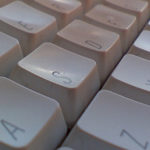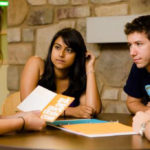In addition to smiley faces, high heels and frogs, Unicode is rolling out a new batch of 250 emojis, among them a set of religious icons.  Unicode is the character coding system that gives a unique number for every character, allowing different companies to have access and support for universal emojis—pictographs that originated in Japanese electronic messaging. The new emojis will feature three types of crosses, the dove of peace and the Om symbol, a mystical Sanskrit sound of Hindu origin. They will join an emoji cast that includes an angel and a devil. The new emojis will be available with the Unicode 7.0 update, but that doesn’t mean users will have them right away. Companies such as Apple, Microsoft and Google have to decide which emojis they want and how they’ll look before customers have the option to use them.
Unicode is the character coding system that gives a unique number for every character, allowing different companies to have access and support for universal emojis—pictographs that originated in Japanese electronic messaging. The new emojis will feature three types of crosses, the dove of peace and the Om symbol, a mystical Sanskrit sound of Hindu origin. They will join an emoji cast that includes an angel and a devil. The new emojis will be available with the Unicode 7.0 update, but that doesn’t mean users will have them right away. Companies such as Apple, Microsoft and Google have to decide which emojis they want and how they’ll look before customers have the option to use them.
Pope condemns racist attitudes toward immigrant children. Pope Francis waded into the controversy of the wave of unaccompanied minors arriving at the United States-Mexico border, calling for an end to racism against migrants and pushing the United States to offer greater protection for young children entering the country illegally.  Pope Francis“Many people forced to emigrate suffer, and often, die tragically,” the pope said in a message sent to a global conference in Mexico. “Many of their rights are violated, they are obliged to separate from their families and, unfortunately, continue to be the subject of racist and xenophobic attitudes.” The Argentine pontiff said a different approach is needed to tackle what he called a “humanitarian emergency” as growing numbers of unaccompanied children are migrating to the United States from Central America through Mexico. “I would also like to draw attention to the tens of thousands of children who migrate alone, unaccompanied, to escape poverty and violence,” the pope said. “They are increasing day by day. This humanitarian emergency requires, as a first urgent measure, these children be welcomed and protected.” The pope’s letter was sent to the Mexico-Holy See Colloquium on Migration and Development and presented by the papal nuncio to Mexico, Archbishop Christophe Pierre. The Vatican secretary of state, Cardinal Pietro Parolin, also attended the conference.
Pope Francis“Many people forced to emigrate suffer, and often, die tragically,” the pope said in a message sent to a global conference in Mexico. “Many of their rights are violated, they are obliged to separate from their families and, unfortunately, continue to be the subject of racist and xenophobic attitudes.” The Argentine pontiff said a different approach is needed to tackle what he called a “humanitarian emergency” as growing numbers of unaccompanied children are migrating to the United States from Central America through Mexico. “I would also like to draw attention to the tens of thousands of children who migrate alone, unaccompanied, to escape poverty and violence,” the pope said. “They are increasing day by day. This humanitarian emergency requires, as a first urgent measure, these children be welcomed and protected.” The pope’s letter was sent to the Mexico-Holy See Colloquium on Migration and Development and presented by the papal nuncio to Mexico, Archbishop Christophe Pierre. The Vatican secretary of state, Cardinal Pietro Parolin, also attended the conference.
Americans view Jews and Christians warmly. A new Pew Research survey finds adults in the United States feel most warmly about people who share their religion or those they know as family, friends or co-workers. Americans give their highest scores to Jews, Catholics and evangelicals on a zero-to-100 “thermometer” featured in the survey, “How Americans Feel about Religious Groups.” They’re nestled within a few degrees of each other—Jews, 63; Catholics, 62; evangelicals, 61. In the middle of the chart are Buddhists at 53, Hindus at 50 and Mormons at 48. Trending to the chilly negative zone are atheists at 41 and Muslims at 40. Pew found, perhaps unsurprisingly, people rate their own groups higher than others. Still, the groups’ overall average scores are pulled down by those who don’t share these faiths. Catholics give themselves an 80 score while non-Catholics give them a 58. Evangelical Christians score 79 with people who called themselves “born-again” or evangelical, but only 52 with others. White evangelicals give their highest warmth score to Jews, 69. However, all that warmth is not reciprocated. Jews gave evangelicals overall a much cooler score of 34. White evangelicals are leery of other non-Christians and downright chilly toward nonbelievers. They rank Buddhists at 39, Hindus at 38 and atheists draw 25—the lowest score of any group. Similarly, atheists give evangelicals overall a rating of 28. The survey was conducted between May 30 and June 30 with a nationally representative panel of 3,217 randomly selected adults—2,849 people answering the survey online and 368 responding by mail. The margin of error is plus or minus 2.2 percentage points.
Church of England approves women bishops. After 20 years of turmoil and heated debate, the General Synod of the Church of England said “yes” to women bishops. The first could be named by the end of the year with the appointment of at least three additional women sometime in 2015, senior church officials said. The General Synod is the three-tier governing body of the Church of England, and it is made up of bishops, clergy and laity. At a meeting in York, the General Synod gave final approval to legislation introducing the changes by the required two-thirds majority. Overall, the Synod voted 351-72 on the measure. Ten abstained.














We seek to connect God’s story and God’s people around the world. To learn more about God’s story, click here.
Send comments and feedback to Eric Black, our editor. For comments to be published, please specify “letter to the editor.” Maximum length for publication is 300 words.